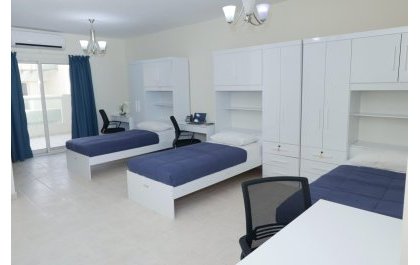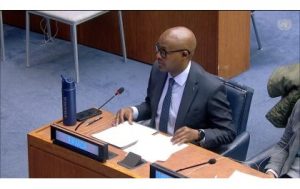The Government of Rwanda is considering an innovative approach to affordable housing developing shared residential facilities where individuals can rent beds instead of entire rooms or apartments. The idea aims to help low-income citizens access decent and affordable accommodation in growing urban centers.
The proposal was announced by Dr. Jimmy Gasore, Minister of Infrastructure, while presenting Rwanda’s new urbanization and housing policy to members of Parliament. The policy seeks to significantly increase the proportion of urban residents from 27.9% in 2022 to 52% by 2035 and 70% by 2050, as part of the country’s long-term urban development vision.
Affordable Housing for All Income Levels
Dr. Gasore explained that housing affordability is determined by whether a person spends no more than one-third of their monthly income on rent. However, he acknowledged that many Rwandans currently spend a much higher share of their income on housing, making it difficult for them to meet other basic needs.
To address this, the government plans to construct low-cost housing units tailored to different income categories. The minister emphasized that the initiative will also cater to people with very limited financial capacity, for whom even the cheapest standard apartments might remain unaffordable. “We recognize that there are citizens who cannot afford regular rental housing but still deserve decent shelter,” Dr. Gasore said. “The idea is to build shared housing units with single rooms, where individuals can rent spaces costing no more than one-third of their income.”
Inspired by Global Urban Housing Models
He further noted that in many major cities, such as Dubai’s Deira, Bur Dubai, and Al Nahda, shared accommodation is a common practice that enables workers and students with modest incomes to live in urban areas. “In cities, people adapt to urban lifestyles. It’s common to find large rooms divided into spaces where each person rents a bed,” Dr. Gasore explained. “We need to accept and plan for such urban realities.”
In this model, tenants rent a personal sleeping space equipped with essentials like a bed and a small wardrobe, while sharing common facilities such as bathrooms, kitchens, and living areas. The arrangement is meant for low-income workers, students, and temporary residents seeking affordable yet decent urban housing.
Supervised and Regulated Accommodation
Although these shared accommodations would be managed through private rental agreements, the local city authorities and the Rwanda Housing Board (RHB) would play a supervisory role ensuring proper standards, tenant protection, and dispute resolution.
Dr. Gasore clarified that these shared units are not comparable to traditional student dormitories but to compact, subdivided urban living spaces, separated by lightweight partitions to maintain privacy.
A Step Toward Inclusive Urbanization
The shared housing initiative aligns with Rwanda’s broader effort to promote inclusive and sustainable urban growth. By offering affordable alternatives across different income levels, the government hopes to reduce informal settlements, improve living standards, and make cities more accessible for everyone.
If implemented, Rwanda would join a growing list of countries adopting innovative, community-based housing solutions to address urban housing shortages and ensure that no citizen is left without a roof due to economic barriers.















